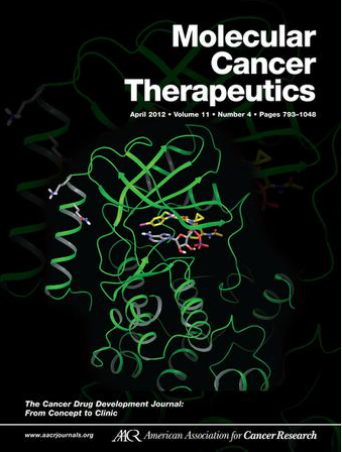维多汀抗体-药物共轭有效载荷推动了基于平台的非临床安全性和药代动力学分析
IF 5.3
2区 医学
Q1 ONCOLOGY
引用次数: 0
摘要
对 MMAE 和 14 种维多汀 ADC 的非临床安全性和药代动力学数据进行了评估,以确定毒性模式、药代动力学结果的一致性以及大鼠和猴子之间的物种差异。大多数非临床毒性与抗原无关,在各种 ADC 中都很常见,包括与 MMAE 药理学有关的血液学、淋巴和生殖毒性。血液学毒性是两种药物中大多数维多汀 ADC 的剂量限制性毒性或主要毒性。ADC 靶向抗原的组织表达很少与剂量限制性毒性(DLT)相关;只有两种 ADC 出现了抗原依赖性皮肤 DLT。对于另外两种 ADC,骨髓中 MMAE 的抗原依赖性递送可能加剧了抗原依赖性血液学 DLT。特定物种的最高耐受剂量和药代动力学相似,大鼠的耐受剂量高于猴子。持续时间超过一个月的研究发现的毒性与一个月的研究相同或更少,没有影响人体风险评估的额外发现。这些数据支持在不影响人体起始剂量选择或靶器官鉴定的情况下简化 ADC 毒性评估。本文章由计算机程序翻译,如有差异,请以英文原文为准。
The vedotin antibody-drug conjugate payload drives platform-based nonclinical safety and pharmacokinetic profiles
Nonclinical safety and pharmacokinetic data for MMAE and 14 vedotin ADCs were evaluated to determine patterns of toxicity, consistency of pharmacokinetic results, and species differences between rats and monkeys. Most nonclinical toxicities were antigen-independent, common across ADCs, and included hematologic, lymphoid, and reproductive toxicity related to MMAE pharmacology. Hematologic toxicity was the dose-limiting or predominant toxicity for the majority of vedotin ADCs in both species. Tissue expression of the targeted antigen of an ADC rarely correlated with dose-limiting toxicity (DLT); only two ADCs had antigen-dependent skin DLTs. For two additional ADCs, antigen-dependent delivery of MMAE in the bone marrow may have exacerbated the antigen-independent hematologic DLT. The highest tolerated doses and pharmacokinetics were similar within a given species, with rats tolerating higher doses than monkeys. Studies longer than one month in duration detected the same or fewer toxicities than one-month studies and had no additional findings that affected the human risk assessment. These data support opportunities to streamline ADC toxicity assessments without compromising human starting dose selection or target organ identification.
求助全文
通过发布文献求助,成功后即可免费获取论文全文。
去求助
来源期刊
CiteScore
11.20
自引率
1.80%
发文量
331
审稿时长
3 months
期刊介绍:
Molecular Cancer Therapeutics will focus on basic research that has implications for cancer therapeutics in the following areas: Experimental Cancer Therapeutics, Identification of Molecular Targets, Targets for Chemoprevention, New Models, Cancer Chemistry and Drug Discovery, Molecular and Cellular Pharmacology, Molecular Classification of Tumors, and Bioinformatics and Computational Molecular Biology. The journal provides a publication forum for these emerging disciplines that is focused specifically on cancer research. Papers are stringently reviewed and only those that report results of novel, timely, and significant research and meet high standards of scientific merit will be accepted for publication.

 求助内容:
求助内容: 应助结果提醒方式:
应助结果提醒方式:


